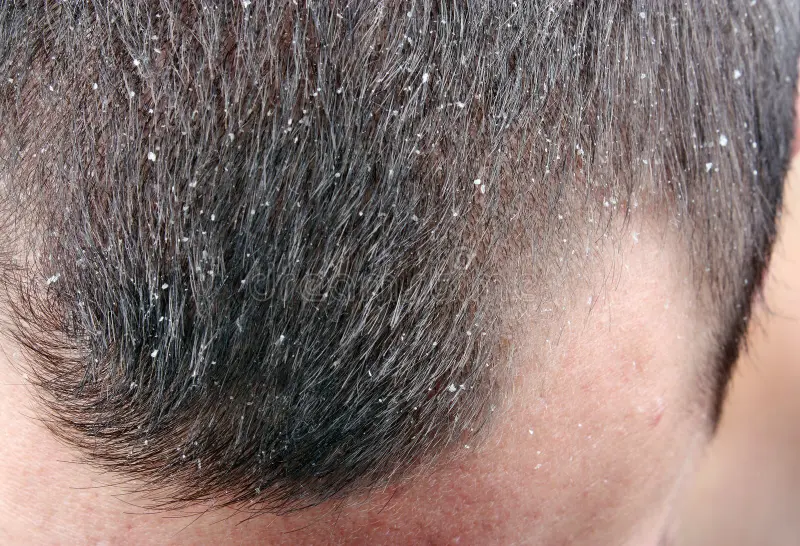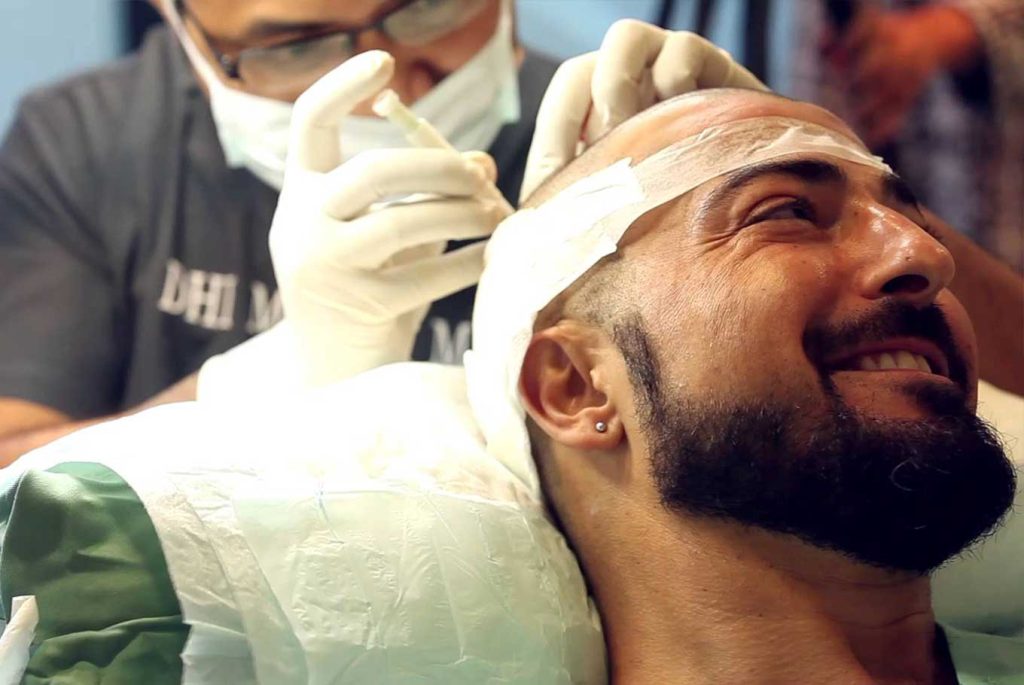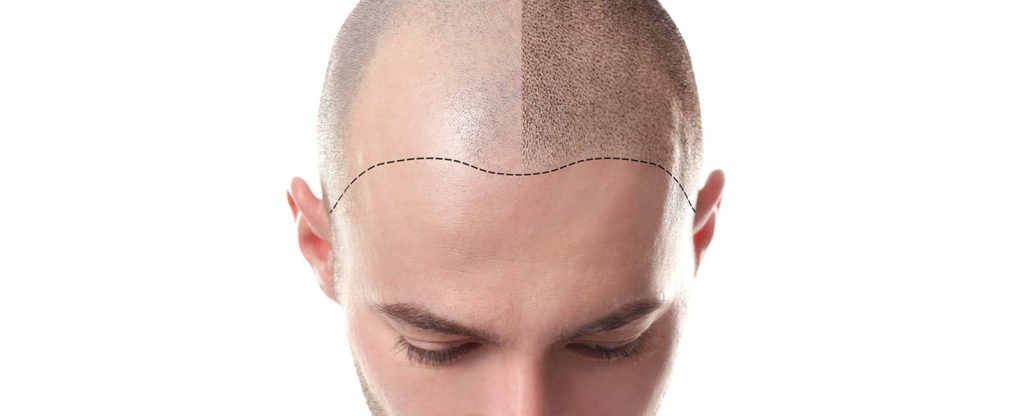After undergoing a hair transplantation procedure, it is not uncommon to experience dandruff formation in the treated area. This can be attributed to the healing process and the body’s reaction to the transplant. While dandruff after hair transplantation may be bothersome, it is typically a temporary occurrence and can be managed with the proper care and treatment. Understanding the factors that contribute to post hair transplant dandruff and knowing how to address it can help ensure a successful and comfortable recovery. In this article, we will explore the causes of dandruff after hair transplantation and discuss effective dandruff treatment after hair transplantation to promote scalp health and hasten the healing process.
What is Dandruff?

Dandruff is a common scalp condition characterized by the flaking of dead skin cells. It can occur due to various reasons, including dry skin, sensitivity to hair products, and a type of fungus called Malassezia. Dandruff can also be triggered by certain medical conditions such as eczema and psoriasis. Symptoms of dandruff include white flakes on the scalp, itchiness, and redness. If left untreated, dandruff can lead to hair loss and scalp infections.
Causes of Dandruff
Some common causes of dandruff include:
- Dry skin: When the skin on the scalp becomes dry, it can lead to flaking and dandruff.
- Sensitivity to hair products: Certain hair products can irritate the scalp and lead to dandruff.
- Malassezia: This fungus can irritate the scalp and cause an excessive amount of skin cells to be produced, leading to dandruff.
Dandruff after Hair Transplantation
Hair transplant dandruff refers to the occurrence of dandruff after undergoing a hair transplantation procedure. Post hair transplant dandruff can be a common side effect and may require specific treatment to avoid complications.
Dandruff Is a Good Sign After Hair Transplantation?

After undergoing a hair transplantation procedure, experiencing dandruff can actually be seen as a positive sign of the healing process. It is a common occurrence as the scalp goes through the recovery phase. Proper dandruff treatment after hair transplantation is necessary to ensure the scalp is healthy and the newly transplanted hair follicles are not affected.
While a flaky scalp may seem concerning, it is important to understand that it is a natural part of the healing process. Regular scalp care after hair transplantation will help alleviate dandruff and promote a healthy scalp environment for the transplanted hair to thrive.
Scalp Exfoliation Causes
Scalp exfoliation is a beneficial practice that helps to remove dead skin cells, dirt, and excess oil from the scalp, promoting a healthier scalp and hair. However, there are certain causes that can lead to scalp exfoliation. Overuse of exfoliating products, using harsh ingredients, and scrubbing too vigorously can damage the scalp, leading to irritation and inflammation. It is important to choose gentle exfoliants and to exfoliate no more than once or twice a week to prevent any adverse effects.
Preventing Dandruff After Hair Transplant
After a hair transplant, it is vital to prevent dandruff to ensure the success of the procedure. Using a gentle exfoliating shampoo and regularly exfoliating the scalp can help prevent dandruff by removing dead skin cells and keeping the scalp clean. Additionally, avoiding excessive scratching and protecting the scalp from harsh environmental factors are also crucial in preventing dandruff post hair transplant. Consistent scalp care is essential to maintain the health and appearance of the transplanted hair.
By incorporating scalp exfoliation into your hair care routine, you can effectively promote a healthier scalp, prevent dandruff and improve overall scalp health. It is important to choose exfoliating products with gentle ingredients and to avoid over-exfoliation to prevent any potential damage to the scalp. Consistency in scalp care is key to achieving the best results and maintaining a healthy scalp.
Can you get a hair transplant if you have dandruff?
When considering a hair transplant, many factors come into play, including the presence of dandruff. Dandruff is a common scalp condition that causes flaky and itchy skin. It is important to address dandruff before undergoing a hair transplant procedure to ensure the best results.
Here are a few things to consider:
- Dandruff can affect the success of a hair transplant procedure as it may hinder the healing process.
- It is essential to treat dandruff before getting a hair transplant to minimize the risk of infection and ensure a healthy scalp.
- Consulting with a dermatologist or trichologist can provide insight into the best course of action for addressing dandruff before a hair transplant.
Conclusion
While having dandruff does not necessarily disqualify you from getting a hair transplant, it is important to address the issue beforehand to optimize the success of the procedure. Consulting with a professional will help determine the best approach for managing dandruff and achieving the desired results from a hair transplant.
How Do You Treat Dandruff After a Hair Transplant?

Dealing with dandruff after a hair transplant can be quite frustrating, but there are several effective treatment options available. It is important to first consult with your surgeon or dermatologist to determine the best course of action for your specific case. One common approach is to use medicated shampoos containing zinc pyrithione or ketoconazole to help control the flakiness and inflammation on the scalp. Additionally, avoid using harsh hair products and consider incorporating natural remedies such as tea tree oil to promote a healthier scalp environment.
Frequently Asked Questions
Is dandruff common after hair transplantation?
It is normal to experience dandruff after hair transplantation as the scalp heals and adjusts to the new hair growth.
How long does dandruff last after hair transplantation?
Dandruff after hair transplantation typically resolves within a few weeks as the scalp continues to heal.
Can I use anti-dandruff shampoos after hair transplantation?
It is advisable to consult with your transplant surgeon before using any specific products, including anti-dandruff shampoos, to ensure they are safe for your scalp at the current stage of healing.
Should I be concerned about dandruff affecting the transplanted hair follicles?
Dandruff should not have a significant impact on the transplanted hair follicles as long as proper post-transplant care and hygiene are maintained.
What are the best practices for managing dandruff after hair transplantation?
Maintaining good scalp hygiene, using gentle products recommended by your surgeon, and following post-transplant care instructions can help manage dandruff effectively.
